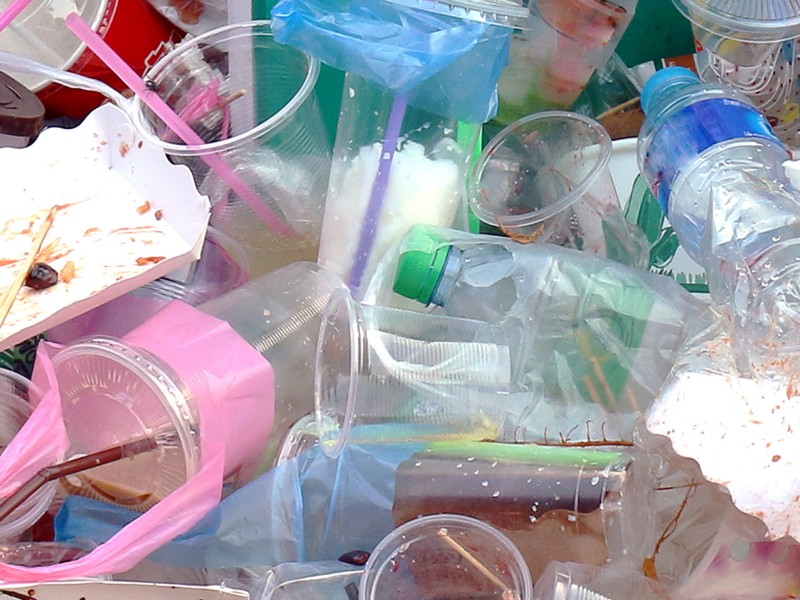
Recent research by MSCI Inc. is suggesting conventional virgin plastic could become the next stranded asset.
The move toward electric vehicles and global efforts to reduce carbon emissions may cause oil demand for road transport to peak in 2025, according to the research. In response, oil and gas companies are expected to pivot their focus to petrochemicals, which are used to make plastics, it added.
“With emerging markets and a growing middle class around the world, there’s a demand for materials. Plastics will fulfill a lot of that demand,” says Samuel Block, vice-president of environmental, social and governance research at MSCI.
That said, there are many trends working against plastics over the long-term.
When China started to restrict the import of plastic waste products into the country in 2017, it created a large backlash, says Block. It disrupted the waste trade around the world.
As well, at the end of 2018, restrictions on single-use plastics were implemented in 60 countries and approximately 350 municipalities in America, noted the research.
Further, the European Parliament passed a directive in late 2018 enforcing restrictions on single-use plastics by 2021, including a requirement to move toward the goal of recycling more than 90 per cent of beverage bottles by 2025, it added.
MSCI identified three main threats to demand for oil and gas feedstocks for plastics: increased demand for recycled materials, development of alternative solutions like biodegradable plastics and shifting demand from plastics to alternatives such as paper-based packaging.
“In short, many [oil and gas] producers have looked to plastics as a means of continued expansion,” the research said. “But our analysis suggests this shift may provide these companies only a temporary reprieve.”
So which oil and gas companies will be successful in the plastic business?
A lot of it’s going to come down to cost competition, Block says. “A high-cost oil sands company might have opportunity to sell some of its hydrocarbons into plastics, but it’ll be competing on cost… and if the demand is going to decrease because of regulation constraints, that could signal there is more likelihood for some companies to fail.”
Plastics are something that have been on MSCI’s radar for a long time, says Block, noting it has been assessing companies on their packaging materials, waste, sourcing performance and the environmental features they put in their packaging.
“Those invested in oil and gas companies have to look at the valuations and ask whether these companies are spending money in a way that creates long-term value – or if there’s a limited upside to these investments because of growing constraints and competition to oil and gas as feedstock.”
